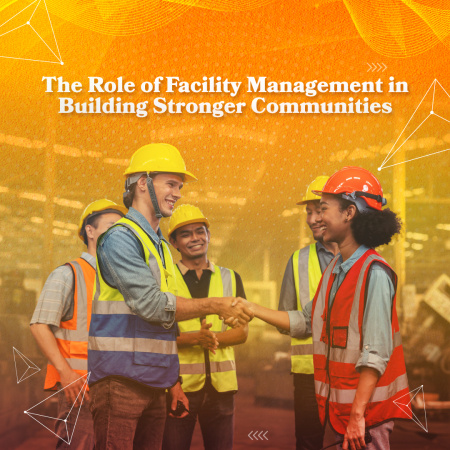The Role of Facility Management in Building Stronger Communities

In today's dynamic and complex world, governments face numerous challenges in delivering efficient and effective public services. Facility management plays a vital role in supporting government initiatives by ensuring the smooth operation and maintenance of public infrastructure. In this blog post, we will explore how facility management professionals contribute to supporting government efforts and building stronger communities.
Public Infrastructure Management:
Facility management professionals work closely with government agencies to manage and maintain public infrastructure, including government buildings, schools, hospitals, transportation systems, and community centres. We will discuss the importance of proactive maintenance, asset lifecycle management, and compliance with safety regulations to ensure the longevity and functionality of these critical assets.
Cost Efficiency and Budget Optimization:
Government agencies often face budget constraints, making cost efficiency a priority. Facility management experts play a crucial role in optimizing operational expenses, reducing energy consumption, implementing preventive maintenance strategies, and leveraging technology to improve resource allocation. We will highlight cost-saving initiatives and the importance of data-driven decision-making in achieving financial sustainability.
Sustainable Practices and Environmental Stewardship:
Government initiatives are increasingly focused on sustainability and environmental stewardship. Facility management professionals contribute by implementing energy-efficient measures, waste management strategies, renewable energy integration, and green building certifications. We will explore how these practices align with government sustainability goals, reduce carbon footprints, and promote a healthier environment for communities.
Emergency Preparedness and Continuity Planning:
Facility management plays a crucial role in ensuring government facilities are prepared for emergencies and disruptions. Professionals in this field collaborate with government agencies to develop robust emergency response plans, conduct risk assessments, and implement measures to maintain critical operations during crises. We will discuss the importance of business continuity planning and how facility management supports government agencies in safeguarding their operations and serving communities during challenging times.
Accessibility and Inclusivity:
Government initiatives often prioritize accessibility and inclusivity to ensure equal access to public services for all community members. Facility management professionals collaborate with government agencies to ensure that public facilities comply with accessibility standards, offer appropriate accommodations, and create inclusive environments. We will explore examples of innovative designs and technologies that enhance accessibility and promote inclusivity within government-owned spaces.
Collaboration and Stakeholder Engagement:
Successful government initiatives require collaboration and engagement with various stakeholders, including facility management professionals. We will discuss the importance of fostering strong partnerships between government agencies and facility management service providers to leverage expertise, align objectives, and create synergy. Collaboration ensures that facilities are well-maintained, meet the needs of the community, and contribute to the overall success of government initiatives.
Facility management professionals play a crucial role in supporting government initiatives and building stronger communities. By effectively managing public infrastructure, optimizing resources, embracing sustainability practices, ensuring resilience, and fostering collaboration, facility management contributes to the success of government endeavors. Together, governments and facility management professionals can create environments that are efficient, sustainable, accessible, and conducive to the well-being of communities.

